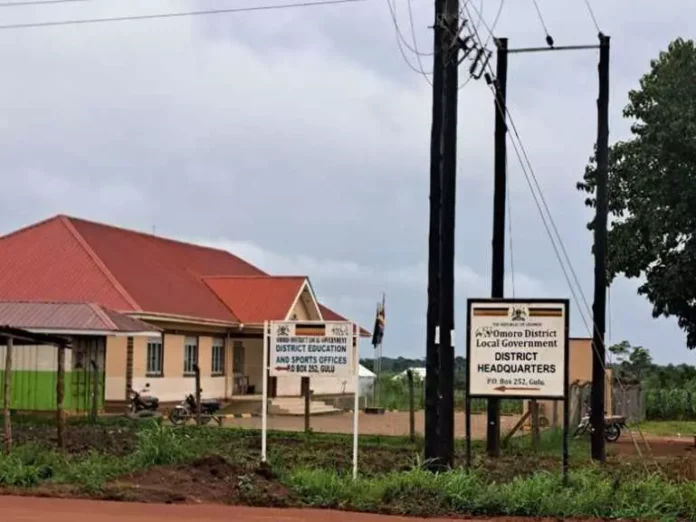By Emmanuel Mihiingo Kaija
Elections are often described as the lifeblood of democracy, yet their integrity depends not only on voting procedures but also on how campaigns are financed and scrutinized. In Uganda, local government elections—from district councils to municipal leadership—present a complex interplay of legal frameworks, political culture, and resource allocation. While laws governing election spending exist, the practical realities of enforcement, transparency, and accountability reveal persistent gaps that undermine public trust and fair competition.
Uganda’s legal framework provides several mechanisms intended to regulate election spending. The Electoral Commission Act (1997, amended), along with the Public Finance Management Act (2015), outlines permissible sources of campaign funding, caps on candidate expenditure, and mandatory disclosure requirements. Candidates are legally obliged to submit detailed financial statements to the Electoral Commission, including receipts and declarations of contributions. These provisions are designed to prevent undue influence by wealthy individuals, corporations, or partisan actors, and to ensure a level playing field for all contestants.
Despite these legal instruments, transparency in local government election spending remains uneven. First, reporting compliance is inconsistent. Many candidates submit financial statements late, incompletely, or with insufficient supporting documentation. Enforcement mechanisms are weak: the Electoral Commission possesses limited capacity to audit and verify financial disclosures comprehensively. This gap creates opportunities for opaque funding sources to influence outcomes, particularly in resource-intensive urban elections where campaign costs—ranging from advertising and rallies to transport and personnel—can reach prohibitive levels.
Between Rallies and Repression: Uganda at the Edge of Election Season
Second, the culture of campaign finance disclosure is nascent. Political patronage networks and localized clientelism mean that funds often flow through informal channels, making it difficult to trace expenditures. In rural districts, where elections are intensely personal and community-driven, in-kind support—such as gifts, food, transport, or promises of employment—can constitute a significant portion of campaign financing yet remain outside formal reporting structures. While the law seeks transparency, socio-political realities complicate compliance.
Third, the enforcement and sanctioning of violations are limited. Although the law permits disqualification of candidates for failing to declare funds or for exceeding expenditure limits, these measures are seldom applied consistently. Political influence, administrative bottlenecks, and limited investigative resources undermine deterrence. As a result, candidates with access to substantial unofficial resources may enjoy competitive advantages over those relying solely on legally declared funds, creating disparities in electoral competition and citizen perception of fairness.
Empirical evidence underscores the scale of the challenge. Research by the Advocates Coalition for Development and Environment (ACODE) in 2022 documented significant underreporting in local government campaigns across multiple districts, highlighting a lack of systematic auditing and public accessibility of financial disclosures. Similarly, civil society observations indicate that transparency gaps often correlate with contested elections, voter disenfranchisement claims, and heightened political tension. These findings suggest that legal provisions, while necessary, are insufficient without robust enforcement and civic engagement mechanisms.
Strengthening transparency in local government elections requires a multi-pronged approach. Institutional capacity must be enhanced: the Electoral Commission needs skilled auditors, digital reporting systems, and timely access to candidate accounts. Public engagement is equally vital. Citizens, media, and civil society organizations must have access to comprehensive, user-friendly information about campaign finances, enabling real-time scrutiny. Finally, cultural and ethical norms within political parties and communities should prioritize accountability, ensuring that financial integrity is not merely a legal obligation but a social expectation.
The consequences of failing to address these gaps are significant. Non-transparent election spending can distort policy priorities, incentivize patronage, and undermine the credibility of elected officials. Local governments risk becoming arenas where wealth, rather than competence or public support, dictates outcomes. Conversely, enhanced transparency fosters trust, encourages equitable competition, and strengthens democratic institutions at the grassroots—a foundation critical for national political stability. As the Ugandan proverb notes: “He who hides his hoe cannot till the land.” Campaign finance, like agriculture, must be visible, accountable, and nurtured openly for the democratic harvest to be fruitful.
In conclusion, Uganda’s legal framework provides a robust foundation for regulating election spending in local governments. Yet, laws alone cannot guarantee transparency. Persistent challenges—including underreporting, informal funding, weak enforcement, and cultural norms—underscore the need for comprehensive reforms. Strengthening institutional capacity, citizen engagement, and political ethics is essential to ensure that campaign finance serves the democratic process rather than undermining it. Only by combining legal structures with practical oversight and societal vigilance can Uganda achieve elections that are fair, transparent, and reflective of the will of the people.
References
1. Electoral Commission of Uganda (1997, amended 2021). Electoral Commission Act. Kampala: Government of Uganda.
2. Public Finance Management Act (2015). Government of Uganda.
3. Advocates Coalition for Development and Environment (ACODE) (2022). Transparency and Accountability in Local Government Elections. Kampala: ACODE Policy Brief.
4. International Foundation for Electoral Systems (IFES) (2020). Election Finance Management in Africa: Lessons and Challenges. Washington, D.C.: IFES.
5. Mulindwa, S. (2019). Campaign Finance and Local Governance in Uganda: A Critical Analysis. African Journal of Political Studies, 22(3), 77–102.








